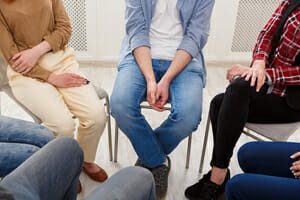
Love or exploitation? Recognizing disorder and supporting the survivor
Instructor: Mary Ann Glynn, LCSW, CHT. In this two-part course, you'll learn to identify the warning signs that your client's partner may have antisocial, narcissistic or other personality disorders, and how to offer appropriate support. 4 credits available for psychologists and social workers upon completion of both parts.

How the Americans with Disabilities Act (ADA) Supports Traumatized Clients in Court
Instructor: Karin Huffer, Ph.D., LMFT. Therapists: If your client suffers anxiety, depression or PTSD, and must face the person who likely caused it in court, this federal law may help tremendously. Learn how to refer your client to court administration for accommodations that may improve his or her executive functionality during legal proceedings. 2 credits for psychologists and social workers.

Helping Lesbians Leave Crazy-making Relationships: Addressing barriers to treatment and delivering effective support
Instructor: Dr. Amber Ault. This webinar presents An overview of abuse in same-sex relationships between women and special barriers to help-seeking among lesbian/bi/trans women.

The Five Step Exit: Tools you need to help clients leave a psychopath, narcissist or other toxic partner
Instructor: Amber Ault, Ph.D., MSW. If your client is in an exploitative or abusive relationship, use this structured, five step model to help him or her escape. In this course, you'll learn to prepare your client to develop a support team, ensure personal safety, and respond appropriately to pushback from the partner. 2 credits for psychologists and social workers.

Understanding and Recognizing Narcissistic Abuse
Instructor: Tiffany J. Kettermann, LPC, CADCI, MPA, MA. Narcissistic abuse is not the same as domestic violence – but is just as damaging to the victim. You'll learn the cycle of narcissistic abuse, the tactics employed such as love bombing, isolation and gaslighting, and how it all affects the victims. 2 credits for psychologists.

Facilitating Professionally Run Support Groups for Partners in Exploitative Relationships
Instructor: Mary Ann Glynn, LCSW, CHT. Therapists: Support groups for clients with disordered partners are incredibly valuable. Groups break their isolation and validate their experience. Learn how to run a safe and healing program. 2 credits for psychologists and social workers.

Counseling Survivors of Intimate Partner Terrorism: Effective and Ineffective Interventions
Instructor: Liane J. Leedom, M.D. Intimate partner abuse survivors aren't codependent; they're traumatized. New research with survivors reveals what makes them feel blamed, and what helps them recover. Therapists, learn how to help your clients effectively.

